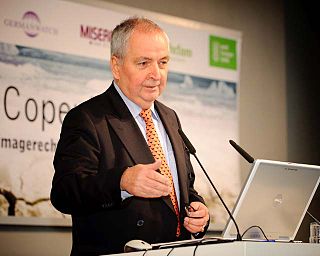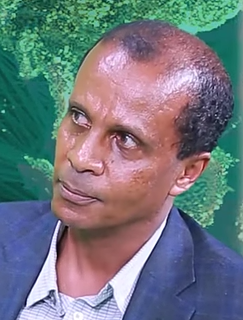A Quote by Melaku Worede
Plant genetic resources are seldom 'raw materials'; they are the expression of the current wisdom of farmers who have played a highly significant role in the building up of the world's genetic resource base... As is already happening in my country, farmers and national genebanks in developing countries can work together to preserve and expand crop genetic diversity on behalf of all humanity.
Quote Topics
Base
Behalf
Building
Building Up
Countries
Country
Crop
Current
Developing
Developing Countries
Diversity
Expand
Expression
Farmers
Genetic
Happening
Highly
Humanity
Materials
National
Plant
Played
Preserve
Raw
Raw Material
Raw Materials
Resource
Resources
Role
Seldom
Significant
Together
Up
Wisdom
Work
Work Together
World
Related Quotes
A decade ago, critics suggested biotech crops would not be valuable in the developing world. Now 90 percent of farmers who benefit are resource-poor farmers in developing countries. These helped alleviate 7.7 million subsistence farmers in China, India, South Africa, the Philippines from abject poverty.
I am a great supporter of bionics and this diversity in nature, this genetic diversity, is not available for free. We, as industrialized nations, have already sinned enough, and we have significantly reduced biodiversity in our countries. But now we expect the poor, less developed countries of the world to preserve their rainforests, mangrove forests and coral landscapes for us at no charge.
I think nobody would claim that random genetic drift is capable of producing adaptation, that is to say the illusion of design. Random genetic drift can't produce wings that are good at flying, or eyes that are good at seeing, or legs that are good at running. But random genetic drift probably is very important in driving evolution at the molecular genetic level.
Superficially it's a problem if homosexuality is genetic - if the difference between people's sexual preferences is genetic - because at least a pure homosexual would be unlikely to reproduce and therefore pass on the genes. So the first question you ask is, is it actually genetic, and the answer is probably to some extent yes.
Now, as the world's scientists focus with increasing intensity on transforming the genetic codes of every living creature into information that can be used to treat and ultimately prevent disease, Shenzhen is home to a different kind of factory: B.G.I., formerly called Beijing Genomics Institute, the world's largest genetic-research center.
There are scarcities in drinking water when you pollute the groundwater with nitrates. There is a scarcity in diversity when you create huge cornfields with the same strain of corn so that when one disease strikes - which happened in the United States in the 70s - all the cornfields in the country are wiped out. That was the first time the U.S. realized the value of diversity in agriculture and began to discuss genetic resources and their conservation.
































